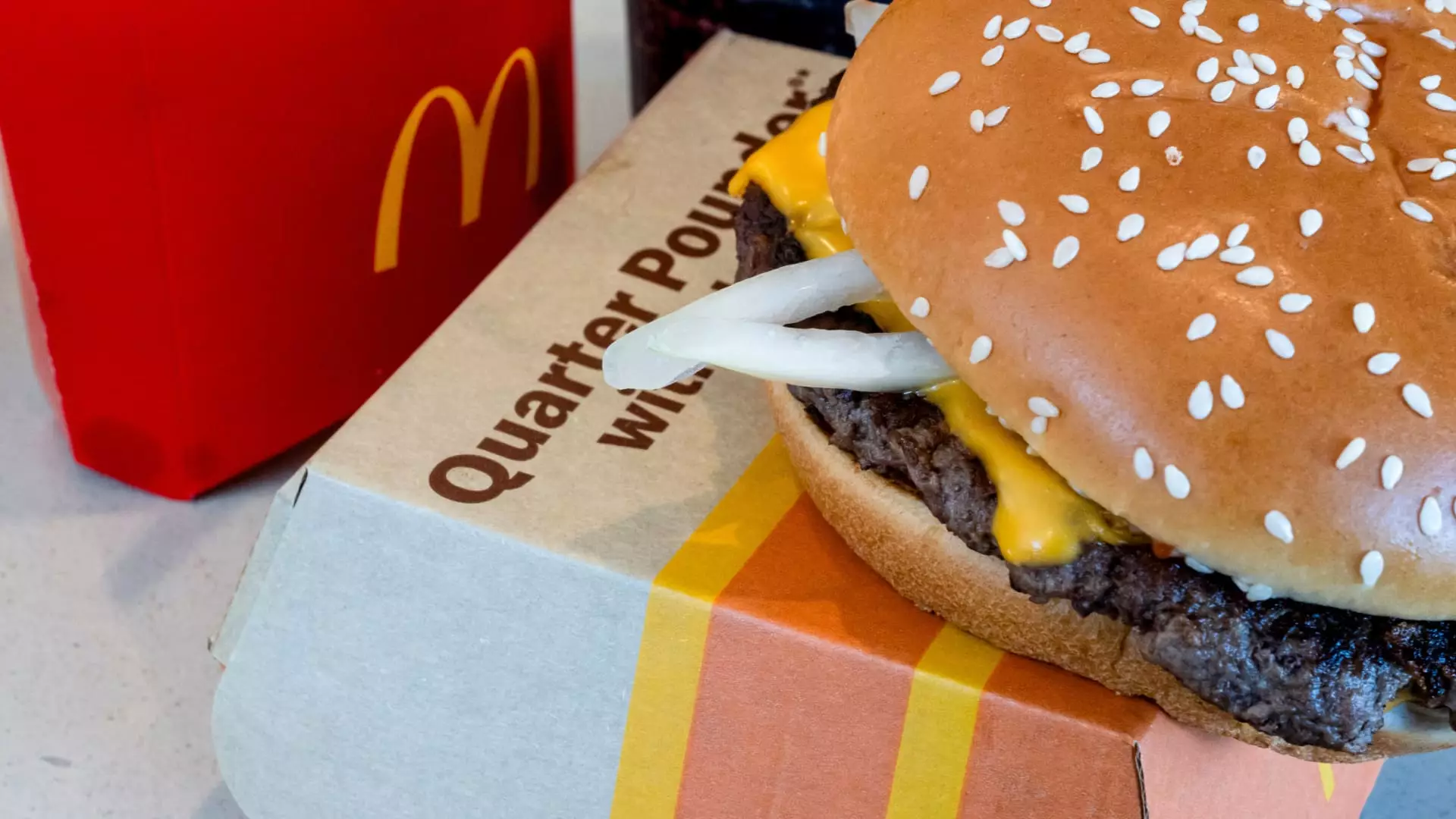The recent E. coli outbreak associated with McDonald’s Quarter Pounders has raised significant alarm across numerous states in the U.S. According to the Centers for Disease Control and Prevention (CDC), the outbreak has led to 75 confirmed cases in 13 states, with 22 hospitalizations and one reported death in Colorado. This situation, characterized by its alarming symptoms and potential for severe health complications, underscores the urgent need for public awareness and action surrounding food safety.
Cases of E. coli infection have been diverse, affecting individuals aged from 13 to 88. The medical ramifications of this outbreak are particularly concerning, as two patients have developed hemolytic uremic syndrome, a severe condition that can lead to kidney failure. These statistics not only highlight the gravity of the outbreak but also suggest that the true number of infections may be significantly higher. Many infected individuals often do not seek medical care or undergo testing, leading to underreporting of cases—something the CDC acknowledges.
Additionally, it is estimated that the contamination likely spans beyond the identified states, hence posing a more widespread risk. This widespread nature of the outbreak reflects the challenges posed by foodborne illnesses and the ways they can traverse through food supply chains.
Corporate Response and Its Commercial Consequences
The outbreak has had immediate effects on McDonald’s, with shares dropping by 2% following the news. Notably, stock prices have seen a 6% decrease since the outbreak was first made public. McDonald’s response to this crisis involves proactive measures to ensure public safety, such as removing slivered onions from their supply chain. In an effort to mitigate further risks, the company has suspended the distribution of onions in the affected regions and withdrawn the Quarter Pounder from many restaurants.
The Quarter Pounder is not just a menu item; it is a pivotal component of McDonald’s brand identity and financial success. In light of the outbreak, about a fifth of McDonald’s U.S. outlets have opted out of selling these burgers, which could have substantial economic implications for the corporation.
Investigation into Ingredients
In investigating the source of contamination, health officials have turned their focus to the sliced onions that are a common topping for Quarter Pounders. Taylor Farms, a California-based produce supplier, has been cited as the source of the potentially contaminated onions, leading to a recall of several onion products. McDonald’s is not alone in this crisis; other chains like Burger King, Pizza Hut, and KFC have removed onions from certain menus as a preventive measure.
However, attention has also shifted towards the beef patties used in Quarter Pounders, as federal agencies continue their investigation into all possible vectors of contamination. The intricate process of tracing foodborne illnesses reveals the complexity behind food safety and highlights the significant challenges for food corporations in maintaining stringent health standards.
As the investigation unfolds, consumer confidence remains a crucial consideration for McDonald’s. Experts suggest that, in the absence of a more severe crisis, the long-term damage to the brand may be limited. Previous experiences from other fast-food chains, such as the E. coli outbreak linked to Wendy’s, indicate that brands can recover relatively swiftly from food safety scandals, as long as they respond decisively and transparently.
Nevertheless, McDonald’s faces a broader difficulty, as sluggish sales trends had already plagued the company prior to this incident. With a growing consumer preference for value-based dining, the outbreak complicates an already precarious market situation. Investors are keeping a close watch, particularly with the company’s third-quarter earnings call looming, where further insights regarding consumer behavior and sales will be critical.
The current E. coli outbreak serves as an urgent reminder of the need for ongoing vigilance in food safety protocols. While McDonald’s is actively addressing the situation and working to reassure customers, the implications of this outbreak extend far beyond immediate health concerns. Foodborne illnesses have the power to disrupt not only individual lives but also the operations of major corporations. As investigations continue, the importance of consumer awareness and corporate accountability in food safety practices cannot be overstated. This incident is a wake-up call for all stakeholders involved in food production and safety, emphasizing the shared responsibility to protect public health.

